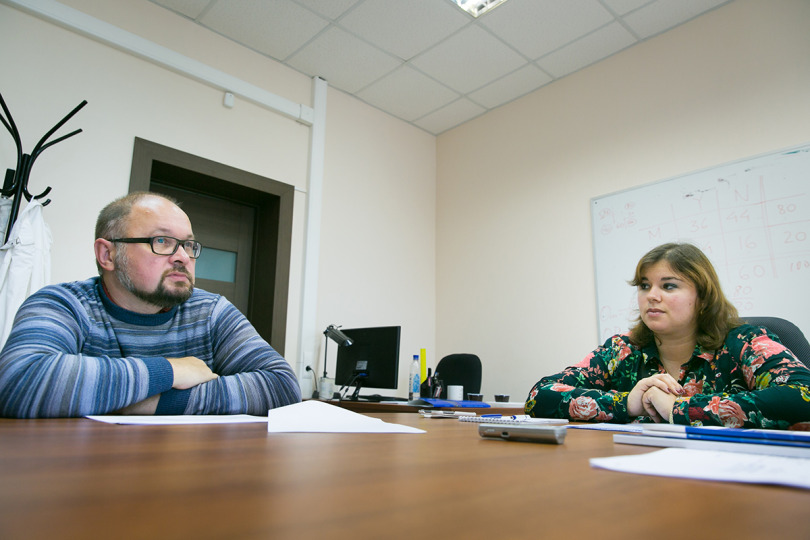Central Asians Happier Than Russians
In Central Asia, subjective wellbeing and life satisfaction tend to be higher than objective wellbeing, and people in Tajikistan and Uzbekistan appear to be more content than Russians about their material circumstances and life in general. According to Tatiana Karabchuk, Deputy Head of the HSE Laboratory for Comparative Social Research (LCSR), and Daria Salnikova, Research Assistant of the same laboratory, relatively low levels of economic inequality in Central Asian countries may be one of the reasons for this paradox.
Settlement History Determines Regional Development
In many countries, including but not limited to Russia, frontier regions, populated more recently than the country's core territory, tend to lag behind in terms of socio-economic development. This phenomenon can be explained by legacies such as state formation in remote regions and the autonomy traditionally enjoyed by new settlers, according to Roberto Foa (Harvard University) and Anna Nemirovskaya, Senior Research Fellow of the HSE Laboratory for Comparative Social Research (LCSR).
Mapping Social Mechanisms in a Civilized Public Sphere
On March 16, Apostolis Papakostas, Professor of Sociology at Södertörn University in Stockholm, Sweden gave a presentation of his book ‘Civilizing the Public Sphere: Distrust, Trust and Corruption’ at the HSE Laboratory for Comparative Social Research. Examining the interplay between distrust, trust and corruption, this book maps out the social mechanisms that make actors and organizations in the public sphere perform their activities in a civilized manner.
Social Well-being Worsens with Age
An elderly person can be described as aging successfully when they maintain good health and engage in fulfilling social activities. According to Larisa Kosova, Director of the HSE Joint Economic and Social Data Archive, poor health and a lack of savings often prevent older people in Russia from enjoying retirement.
Education as a Vehicle for Peace
The 5th annual LCSR conference was organized from 15th - 21st November at HSE. One of the keynote speakers at the conference on Cultural and Economic Changes under Cross-national Perspective is the Director of the Social and Economic Survey Research Institute at Qatar University, Darwish Al Emadi. Dr. Al Emadi’s talk was on The Challenges of Surveying in Countries with Unorthodox Population Pyramids. He spoke to HSE English News about his long term goal to improve education on a global level and about his cooperation with HSE.
Migrant Flow from Central Asia to Russia Will Increase
In the near future, the number of migrants from Central Asia coming to work in Russia will increase – particularly from Tajikistan and Kyrgyzstan, countries where remittances from their citizens working in Russia stand at almost half of their respective GDPs, according to a joint study by the Eurasian Development Bank (EDB), the United Nations Development Programme (UNDP), the HSE Laboratory for Comparative Social Research (LCSR), and the Russian Academy of Sciences (RAS).
One Year of Science and Technology Studies Fieldwork in HSE
Ian Lowrie, visiting PhD-student from Rice University spent last academic year at HSE doing anthropology of Russian Science & Technology.

International Not Only in Name
The International Laboratory for Comparative Social Research (LCSR) was established in 2010 in the first wave of a competition for government mega-grants to attract major academics from abroad to Russian universities. The famous American sociologist and political scientist Ronald Inglehart, Founding President of the World Values Survey and professor at the University of Michigan, became the laboratory’s first Academic Supervisor.
'Urban Movements and Local Civic Activism are the Most Flourishing and Productive Sides of Contemporary Russian Society'
Christian Frohlich has been a Research Fellow at the Centre for Studies of Civil Society and Non-Profit Sector since 2014. This year he is being fast tracked for tenure in the HSE Faculty of Social Sciences in the School of Sociology. Dr Frohlich has a DPhil in Sociology from Leipzig University, Germany. He spoke to HSE English News about his research into civic activism in Russia and about why he likes living and working in Moscow.
LCSR Summer School on ‘Introduction to Factorial Design and Data Visualisation with R’
As the 5th LCSR Summer School on ‘Introduction to Factorial Design and Data Visualisation with R’ came to a close on August 3, participants commented on their experience and shared their impressions.


Registration is open until April 1, 2025